How Western food imports are fuelling obesity in Pacific nations
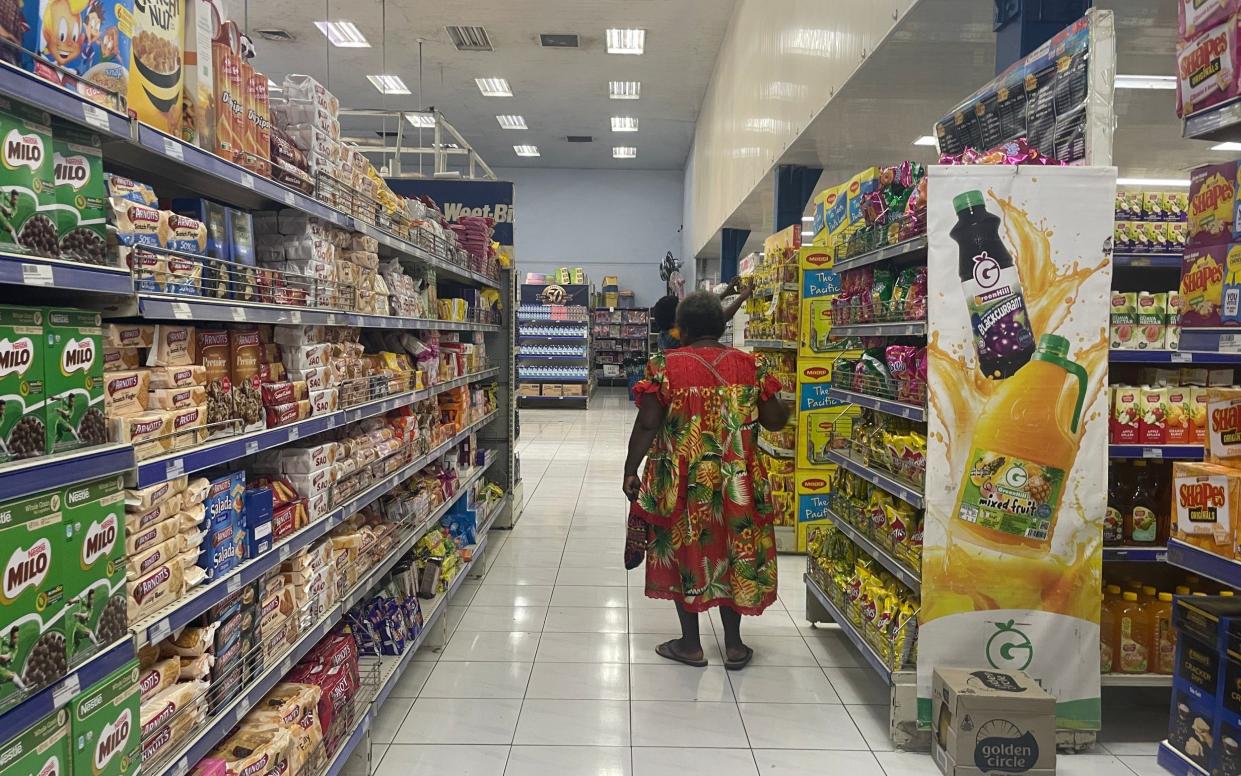
Every day, the finest fruit and vegetables Vanuatu has to offer are sold at the bustling Port Vila market on the island of Efate.
There are golden yellow bananas fanned out among floral-patterned tablecloths, giant grapefruits organised in long rows, and muddy brown yams laid out in front of the stalls. It’s a spread that is as healthy as it is colourful.
Yet the high costs of such foods means that the local people of Efate, one of 83 tropical islands that make up the Pacific nation of Vanuatu, are more likely to eat processed foods, like noodles and canned meat, imported from the West.
“Every year the prices are increasing, not just in a small way but in a big way,” said Nunes Saniel, a hotel worker. “It’s hard for [people] to afford such food so they have to go for imported foods.”
The mass consumption of these products, experts say, has driven a rise in obesity rates across the country. Almost a third of the population is obese, according to the Global Nutrition Report, while many more are considered overweight.
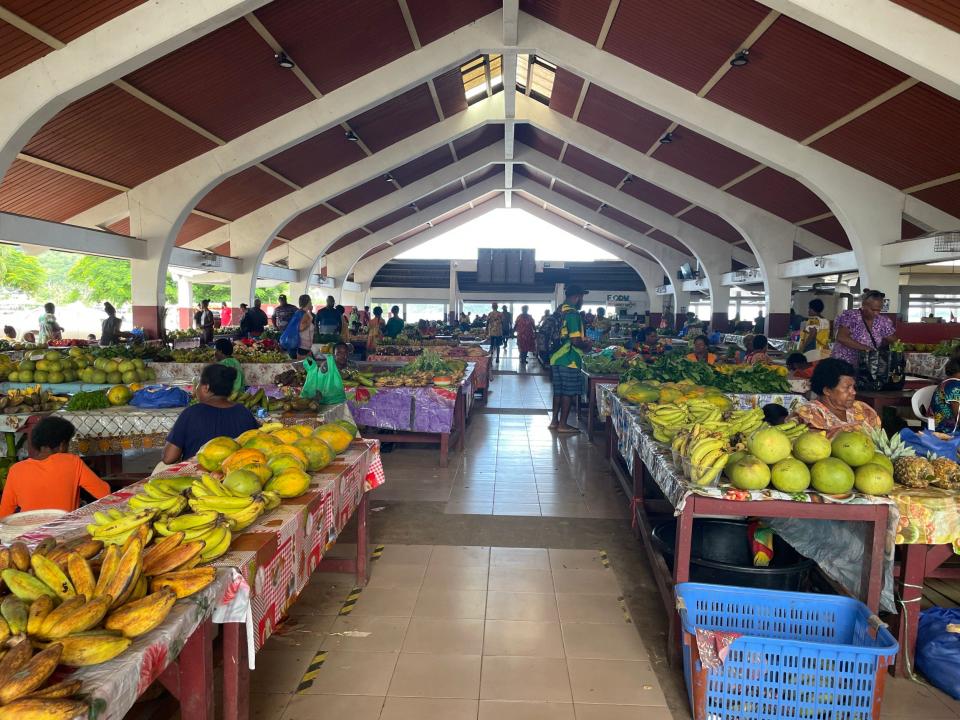
Between 1975 and 2016, data identified Vanuatu as one of the countries with the largest increases in overweight and obese children globally. This is in line with much of the rest of the Pacific region, home to nine of the world’s 10 most obese countries.
Nerida Hinge, national coordinator for nutrition at Vanuatu’s Ministry of Health, says the prevalence of non-communicable diseases (NCDs) is increasing “every day” as a result of the country’s poor nutrition.
Obesity is a risk factor for a range of NCDs including diabetes, hypertension and heart disease. Almost 20 per cent of adults were estimated to have diabetes in Vanuatu in 2019, and national mortality data indicates up to 60 per cent of premature deaths are a result of NCDs.
In Saniel’s case, several of his family members have been diagnosed with heart disease or diabetes. He blames their reliance on canned goods. “Looking at the people having these diseases, in the houses they buy mostly imported foods,” he said.
It’s not that people don’t know how to be healthy but they can no longer afford locally-produced, healthier food, Hinge said.
Price hikes have ‘caused an imbalance’
At the Port Vila market, a single grapefruit costs 150 vatu (£1), compared to 55 vatu (36p) for a packet of noodles from the nearby supermarket.
A basket of sweet potato or cassava meanwhile costs around 1,500 vatu (£10), up from 500 vatu (£3) a few years ago, said Hinge. “You consume that in maybe one or two meals compared to five kilograms of rice, which is less than 1,000 vatu (£6.60) and can accommodate a family for maybe a week.”
Fishermen, she added, often sell their day’s catch only to purchase tinned tuna for their own dinner.
Sridhar Dharmapuri, a senior nutrition expert at the United Nations’s Food and Agriculture Organization (FAO) in Asia-Pacific, said the population of Vanuatu was highly dependent on processed foods largely imported from other countries, including Australia and New Zealand.
This is a trend repeated across many of the Pacific island nations, he added, and “has caused an imbalance” in the intake of nutrients.
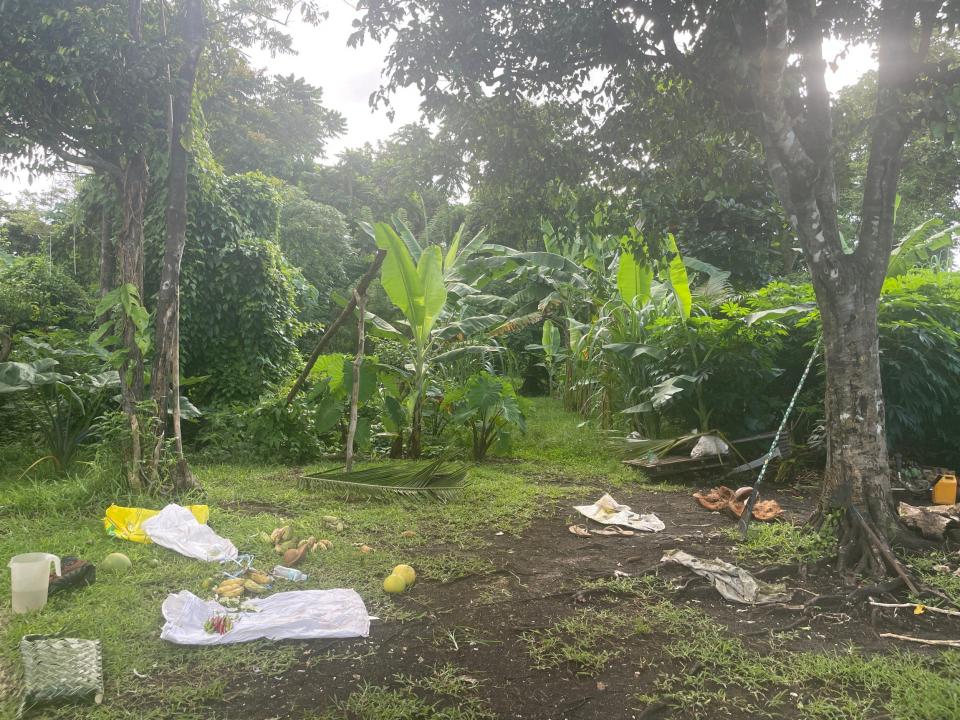
The food price hikes in Vanuatu have emerged as the number of available crops dwindles. The country, with its mountainous landscape and coastal atolls, has limited arable land mass and a decreasing number of agricultural workers as more people move to urban areas or leave entirely for higher-paid work.
Of the crops Vanuatu does cultivate, some, such as cocoa and coconut, are prioritised for export rather than local consumption.
Then there is the bite of climate change to contend with. Rising sea levels can make it difficult to grow crops, while climate-linked disasters such as cyclones and droughts can wipe out an entire season’s harvest.
In 2023, the country experienced two category four cyclones within a two-day period and a category five cyclone later in the year. The damage to crops contributed to the government’s declaration of a state of emergency.
The World Risk Index 2021 ranked Vanuatu the most vulnerable country in the world to natural disasters.
“When we have the cyclones, many of the farms are affected. For the only ones that can sell, it’s supply and demand so there’s a tendency for them to actually increase food prices,” said Katherine Faigao, a health and nutrition specialist with Unicef in Vanuatu.
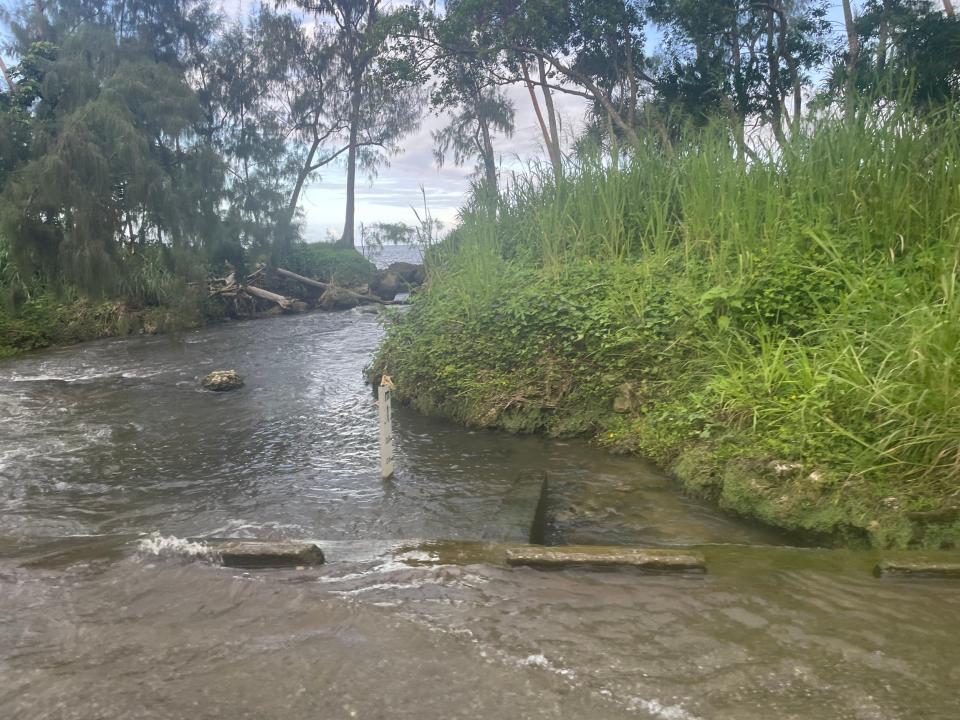
In place of fresh produce, a reliance on imported ultra processed foods (UPFs) that can be stored for a long time and depended upon post-disaster, has grown.
Even the food aid delivered after a cyclone consists of noodles and canned fish, said Hinge, adding that this is when the country typically sees its sharpest spike in malnutrition and micronutrient deficiencies.
“UPFs have the advantage that they have a long shelf life, are mass produced, are cheap [and] usually carbohydrate dense,” said Elaine Rush, a professor of nutrition at the Auckland University of Technology in New Zealand. Yet they also tend to be high in salt, fat, sugar and other additives.
Around the world, some countries, including the United Kingdom, have banned the importation of certain genetically modified foods or those containing high numbers of additives.
In Vanuatu, there’s no such enforcement, said Hinge. “We don’t have a strong policy or strong guide where it says that we allow only this type of food into the country. There’s nothing in place yet. Anything can just come into the country.”
“All these [factors] together then contribute to a higher rate and easier availability of richer foods, and therefore lead to overweight and obesity,” Dharmapuri said, highlighting that undernutrition and micronutrient deficiencies are also an issue.
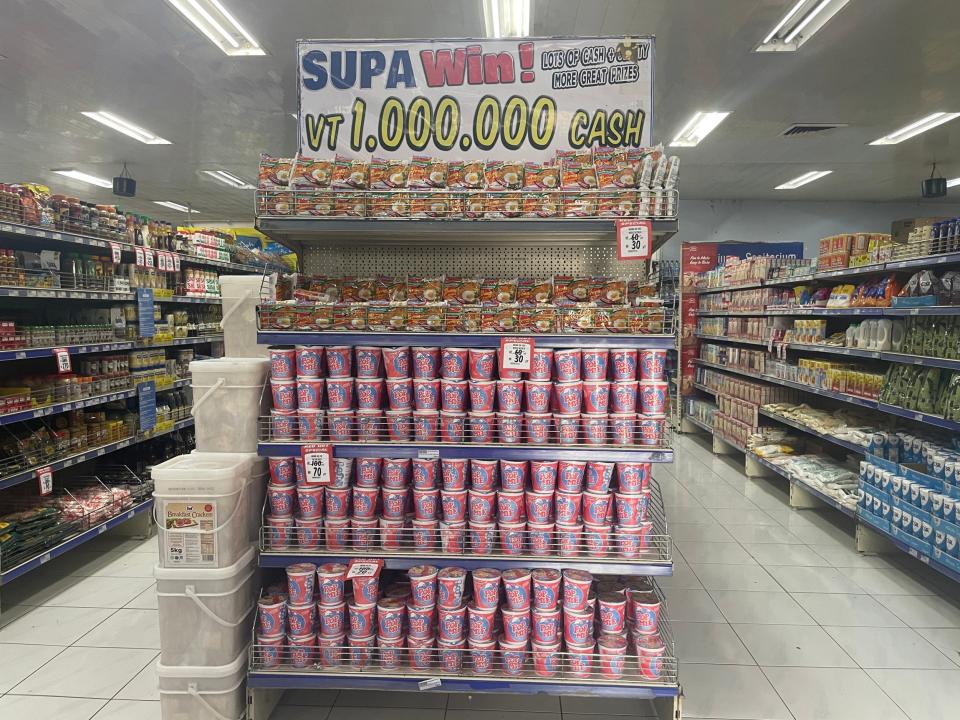
According to the World Health Organization, despite long being aware of the scale of the problem, health leaders haven’t initiated action fast enough.
“It’s only by working together, across the whole of government and across the whole of society, that we will be able to halt rising rates of obesity,” Dr Mark Jacobs, WHO representative to the South Pacific, said in a statement.
In September 2023, 15 health ministers across the Pacific, including that of Vanuatu, committed to eight actions designed to tackle the drivers of obesity, including working with other ministries such as trade, customs and agriculture to create taxes and impose marketing regulations on unhealthy foods and beverages.
UN food officials are also talking to regional suppliers about altering their processed products, Dharmapuri said. “We can’t ban processed food so what’s easier to do is to work with the private sector and reduce and make healthier formulations,” he added.
On a national level, Unicef is training health workers in Vanuatu on nutrition protocols and supporting the promotion of healthy diets and lifestyles through the media.
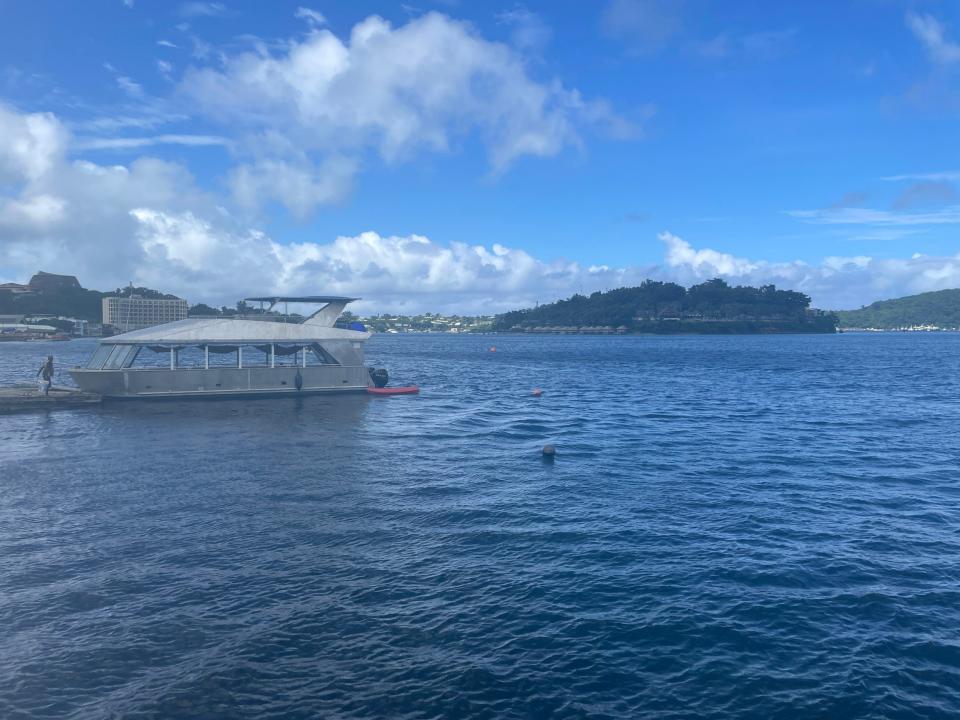
A community nutrition centre in the capital of Port Vila, run by local NGO Wan Smolbag, also provides locals with advice on how to manage their blood pressure and diabetes and runs nutrition classes for young people. “Early nutrition determines later function and health,” said Prof Rush.
“But if there’s not enough vegetables actually available or there’s no affordability, then the messaging does not really help,” Dharmapuri said. “There needs to be measures to promote the cultivation of more vegetables.”
A new Food Safety, Security and Nutrition Policy 2022-2030, introduced by the government at the end of 2023, could help. It plans to prioritise the promotion of climate-resilient crop cultivation and the creation of vegetable gardens at health facilities while also emphasising training on NCD-related diets for community leaders.
For Hinge though, the government can only do so much. “Dealing with behavioural change is a tricky thing to do,” she said. “We are trying our best, but I feel it depends on each person … what they put on the plate, that’s up to them.”
Protect yourself and your family by learning more about Global Health Security

